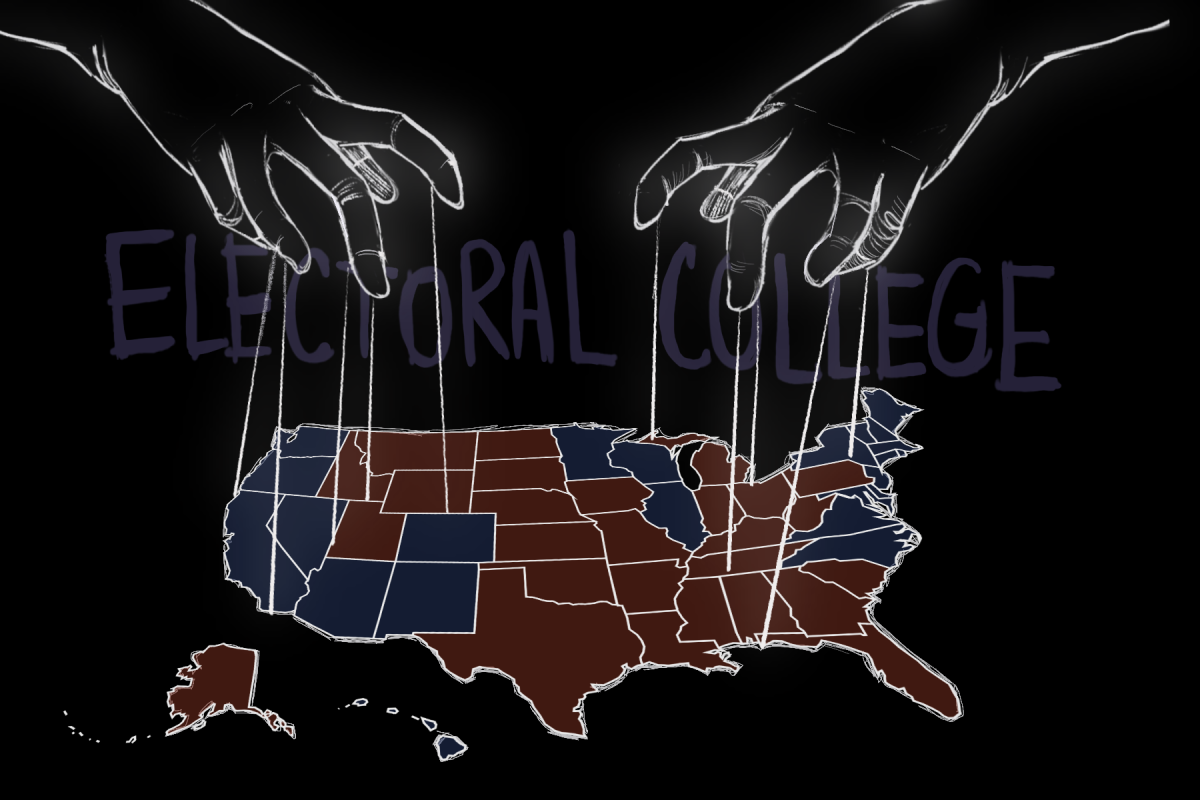In today’s political landscape, the electoral college is a very important and controversial topic. Many believe in eliminating the electoral vote, while others think it is still a necessity. The electoral college was created during a time when certain groups of people lacked access to education, in part because of the ineffective spread of information. A committee of electors was created for presidential elections, and although its purpose was valid at the time, they do not hold up in the present. Nowadays, society is more informed on a national scale than ever before, thanks to easy access to social media and an abundance of news sources. Consequently, our democracy no longer needs the electoral vote to determine its outcomes.
The Electoral College, established by the founding fathers in the 12th amendment to the Constitution, emerged as a response to concerns raised by smaller states, as seen in the New Jersey Plan. Fearing that larger state populations might have a dominant influence on the presidency, the Great Compromise was created to ensure equal representation. However, this took a troubling turn with the ⅗ Compromise, which regarded enslaved people as ⅗ of a person for purposes of representation. Not only was this racist and dehumanizing, but it also granted the Southern states greater influence during elections while denying African Americans a voice in the process. To a greater surprise, this policy persisted even after the Civil War, as African Americans still were not given the right to vote. This stark historical episode serves as an example of how easily the Electoral College can be manipulated.
In today’s society, with more widespread access to education than ever before, the citizens themselves should be trusted to make their own decisions. While the spread of fake news remains a large concern, there are still lots of valuable and reliable news sources. The Electoral College, however, is a system that does not fully entrust the people to directly elect a president – an idea that contradicts one of America’s greatest foundational principles. Even if the popular vote goes in one direction, the electoral vote can sway it in the opposite. I believe the time has come for us to explore and implement a new electoral system that better aligns with our democratic ideals and the current informational landscape.


